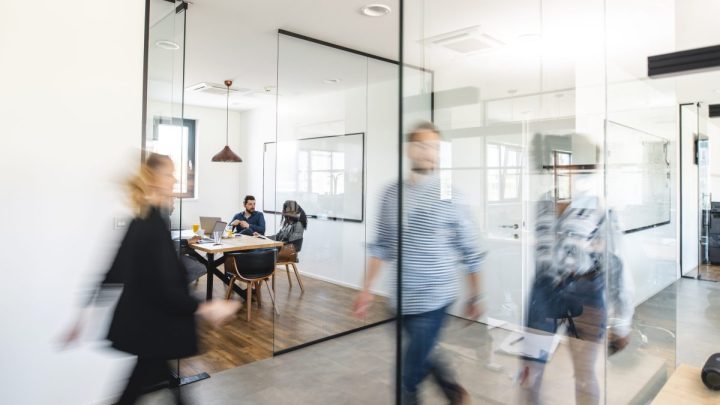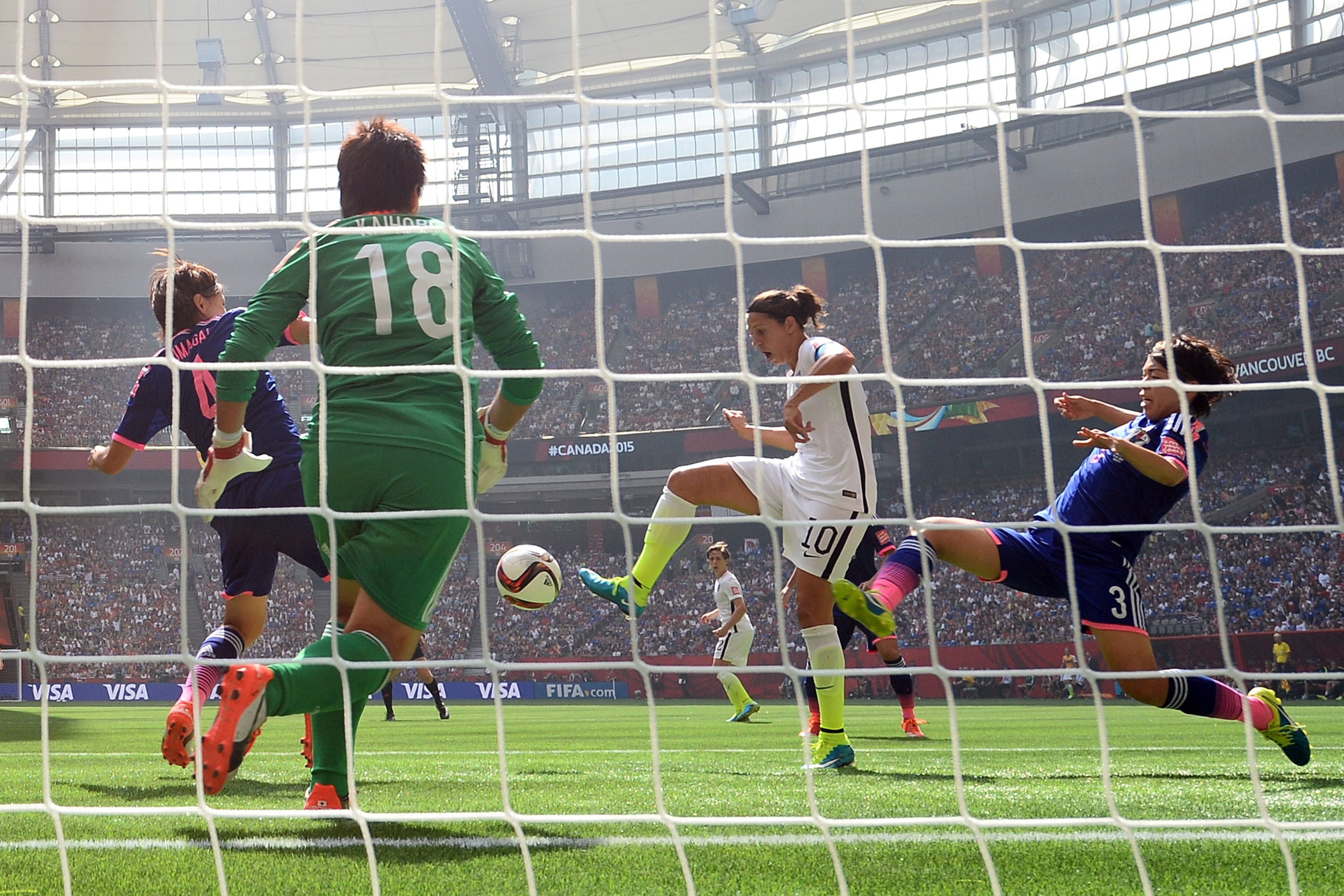
Admit it — you miss socializing at the office

It’s a sunny late afternoon in New York’s Central Park, and a bunch of 20-somethings in light blue T-shirts huddle up near a dusty kickball field. It’s the Murray Hill Menaces’ sixth game of the season. And a lot of them are just meeting for the first time.
The team is a mix of familiar and unfamiliar faces: friends, friends of friends, friends of friends of friends. Chloe Cronin is the team captain. She graduated from college in 2021, back when many offices were still playing a game of chicken with in-person work. She moved to New York knowing just one person, a friend from high school.
“That was basically my social group for the first five months, and it was definitely a hard adjustment coming from being in college and living with five roommates to just having really one friend,” she says.
Cronin moved here expecting to meet people at her job in finance. Instead, she’s turned to this kickball league, called Play NYC. Her office is hybrid. And if you work in a hybrid office, you know how it is.
“I almost compare it to a library when my co-workers aren’t in because I’ll just go in and not talk to anyone and just do my work and then leave,” she says.
It’s been more than three years since the pandemic first shut down offices across the country. That means there are also more than three years’ worth of office workers who have never actually worked in an office in the Before Times. There are benefits. Working from home means they don’t have to commute, they can skip the awkward elevator talk and they never have to deal with icy office air conditioning.
But office culture is just not what it used to be. And many who’ve never had it are realizing they’re missing a foundational piece of the transition to adulthood. Work isn’t just the place where people start their careers. It’s one of the places where they build their first adult friendships.
“My heart goes out to all those younger, junior professionals who have moved to a new city or just moved out of their parents’ house and they’re suddenly finding themselves without a lot to do after hours or without people to sit with at lunch,” said Connie Noonan Hadley, who directs the Institute for Life at Work.
Co-workers can be more than people to sit with at lunch or go to happy hour with. They might become lifelong friends — even lifelong partners. (Yes, that one is frowned upon, but it happens.)
Hadley said making friends at work helps us figure out who we are.
“Part of what, when you’re graduating from college or high school, you’re searching for is your identity,” she said. “And we know that work plays a huge part of the definition of ourselves as we think about who we are, but also the person we present to other people.”
Of course, there are plenty of ways people can and should develop themselves outside the office. But the water cooler is an easy and natural place to start. Because work is a place where people have common interests.
“We can form bonds around things that we share even across generations,” said Robert Waldinger, who directs the Harvard Study of Adult Development. “So we can bond with younger workers or older workers in surprising ways. We get out of our bubbles that may exist in our home life.”
That’s what motivated Ellen Wieland in Madison, Wisconsin, to take up a bunch of hobbies. She joined a Shakespeare reading group and pottery classes. For the first time, at 22, Wieland is on her own. Just her and her cat, Garlic.
“The fear that I would just be isolated and totally alone really weighed on me,” she said.
She actually likes working from home and focuses best there. But she sometimes thinks about driving into work just for lunch.
“A couple months ago we had a really interesting conversation with the life insurance actuaries,” said Wieland, who is an actuary too. She calculates insurance risks and premiums.
Her co-workers got into a debate about competitive eaters. “People who, like, train to eat as many hot dogs as they could in a very short period of time. Would you give them higher life insurance rates because they’re putting themselves in risky situations, or would they get lower because they train so hard and pay such close attention to their health and diet outside of competitions? You just don’t get those kind of conversations anywhere else.”
And they never did come to a conclusion. But the answer didn’t really matter.
There’s a lot happening in the world. Through it all, Marketplace is here for you.
You rely on Marketplace to break down the world’s events and tell you how it affects you in a fact-based, approachable way. We rely on your financial support to keep making that possible.
Your donation today powers the independent journalism that you rely on. For just $5/month, you can help sustain Marketplace so we can keep reporting on the things that matter to you.

















